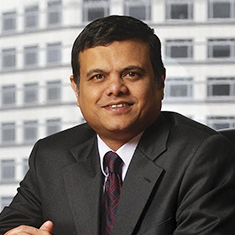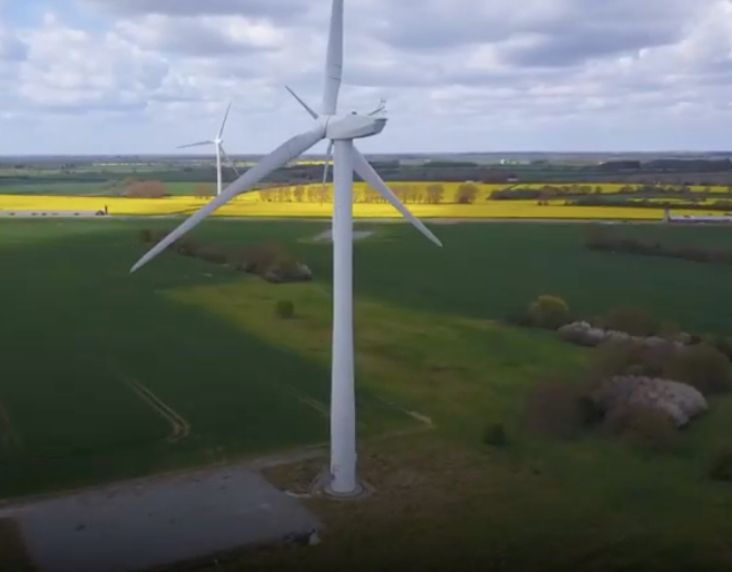As we get back to business in 2023, we find ourselves in a fast-moving, fragmented world, marked by myriad technological, geo-political and social disruptions. As a result, we see businesses looking to solve for a key topic – how to ensure the customers they want to serve get the best experience, while helping their businesses remain sustainable. It is certain that the future will be defined by emerging technologies like 5G, artificial intelligence (AI), Web3, augmented reality (AR), metaverse, and so on. Human-centered, purpose-driven connected experiences however will be the key to success.
Even before COVID-19, companies were witnessing rapid shifts in consumer and employee engagement. The pandemic accelerated the focus on human-centered experiences, starting with touchscreens and smartphones that made access to businesses easy. The recent cloud and 5G era also helped enrich data and content driven engagements. Most companies have witnessed ‘digital transformation’ over these years, and they now need to consolidate their strategies towards building resilient, enduring businesses.
Resilient companies demonstrate better collaboration across their ecosystem, create consumer-centric solutions, and drive positive impact across communities not just their customers. With the right technology stack backing you people, performance, and processes, companies experience increased visibility, transparency, productivity, and profits.
Embracing Sustainability that Builds Trust and Resilience
Sustainable transformation is about finding ways to make our ecosystem more efficient in the long-term, while promoting mindful growth. One way to do this is by leveraging technology to empower collaboration and generate new ideas between individuals, organizations, and communities. There is strong pressure from regulators, investors, and society for businesses to deliver environmentally sustainable products and services that customers will need and want.
To reach their goals, companies will need structured scientific analysis and build a mindshare that keeps sustainability at the core. There will be an increasing need for audits for which enterprises will have to show credible data on their actions. Traceability will become important to hold businesses accountable for following through with their commitments as well as build deeper trust across their customers and stakeholders.
Adopting Technologies that Drive Connected, Personalized Experiences
Advanced technologies such as AI, cloud computing, and data analytics, companies can provide enhanced customer experiences through personalized recommendations, streamlined processes, and real-time support. Enterprises of the future are prioritizing the use of cloud-based, data-driven applications and network, as they undergo digital transformation, with a focus on security and environmental, social, and governance (ESG) objectives. There will be increased focus on secure digital infrastructure that leverages environmental credentials of cloud technology, uses data to drive efficiencies, reduces waste, and increases reach for service deliveries in the remotest areas. This will be achieved using Edge-based mobile private networks and 5G as these emerging trends gain ground in 2023.
In specific industries, we have seen a rise in trends such as smart manufacturing, digital healthcare, immersive customer experiences, AR/VR-assisted maintenance, and even smart agriculture due to the increasing digitization. Those that can utilize their data to make quick, important decisions will have a competitive advantage. For instance, traditional banks are adopting digital technologies to improve virtual customer experiences. Low-code no-code development platforms are becoming popular allowing enterprises and developers to quickly create mobile or web applications. Service providers that offer advanced self-service capabilities, such as conversational AI integration with voice assistants, e-signatures, and IoT-based payments, are highly appealing to consumers.
Overall, new age technologies are driving a new era of customer experience and sustainability, allowing businesses to not only meet the needs of their customers, but also contribute to a more sustainable future for all.
Harnessing the Power of NXT Experiences for an Equitable World
The question then arises – how do we drive lasting change in a rapidly changing world that often seems fragmented? One key here is to focus on human-centered experiences driven via secure digital networks. This is where our NXT.NOWTM framework comes into play. It doesn't matter if the situation is changing quickly or if a region has different growth factors, the underlying philosophy is to deliver experiences of the future keeping sustainability at the core of every strategy. The focus shifts from just the bottom-line to the entire stakeholder system in the way that can drive positive value within and outside the enterprise.
Working across industries, we bring together diverse perspectives and resources to create a more comprehensive and effective solutions. This could be partnering with local organizations, forming coalitions with like-minded groups, or even engaging with policymakers to advocate for change. Ultimately, driving lasting change in a fragmented world through sustainable transformation requires persistence, creativity, and a willingness to work with others. But with the right mix of mindset, technologies, and a partner ecosystem, it builds deeper trust with your stakeholders and creates a more sustainable and equitable world for all.





